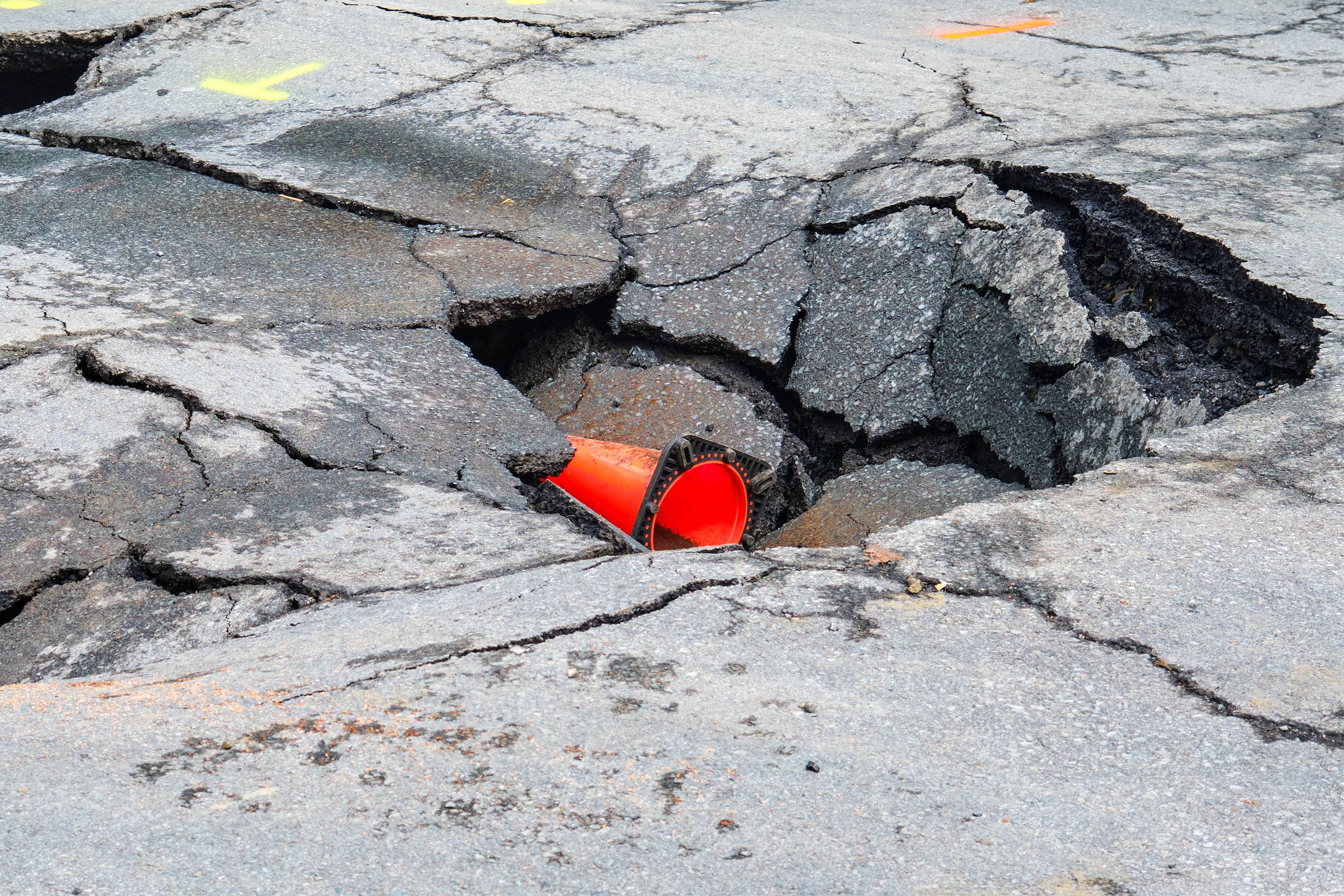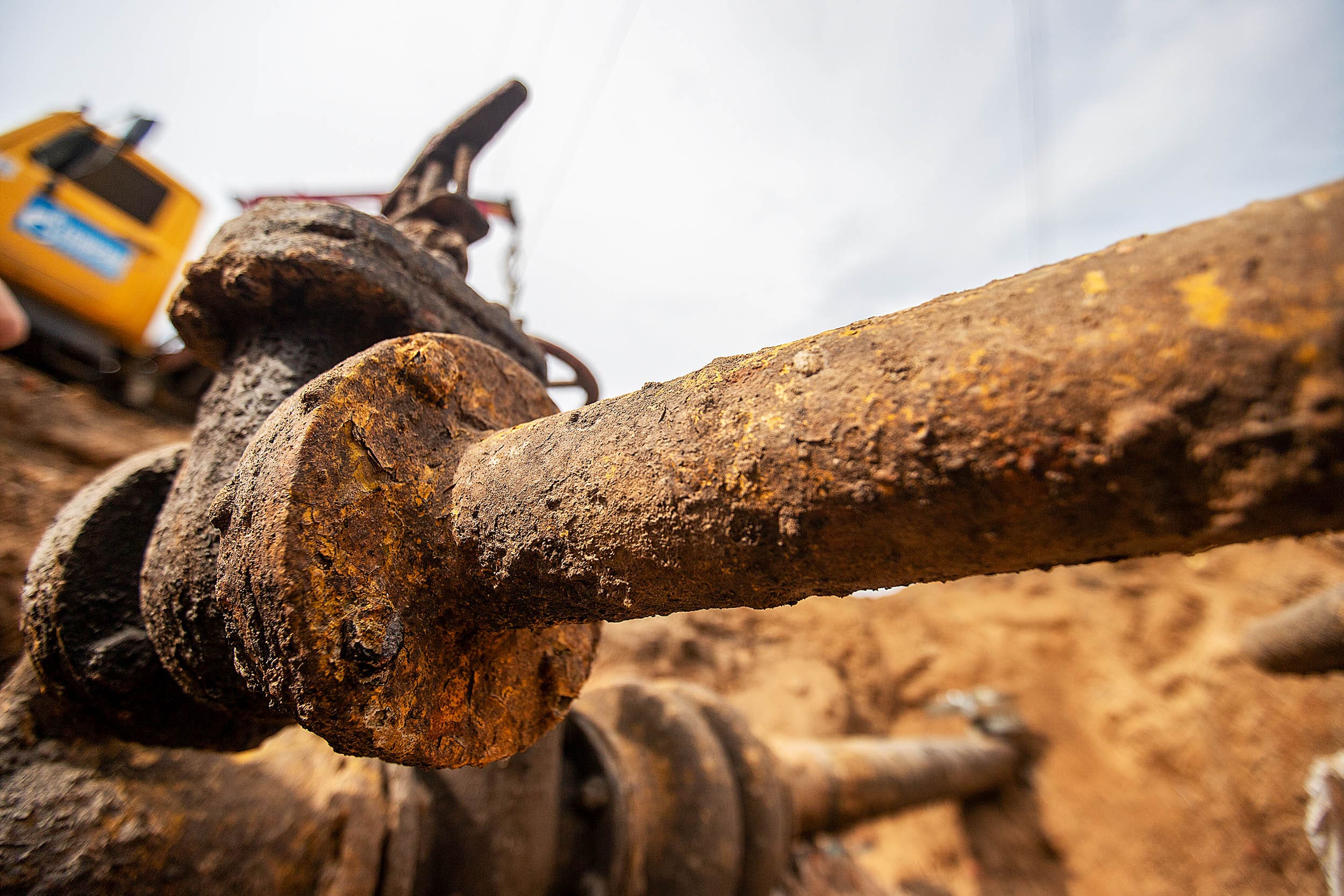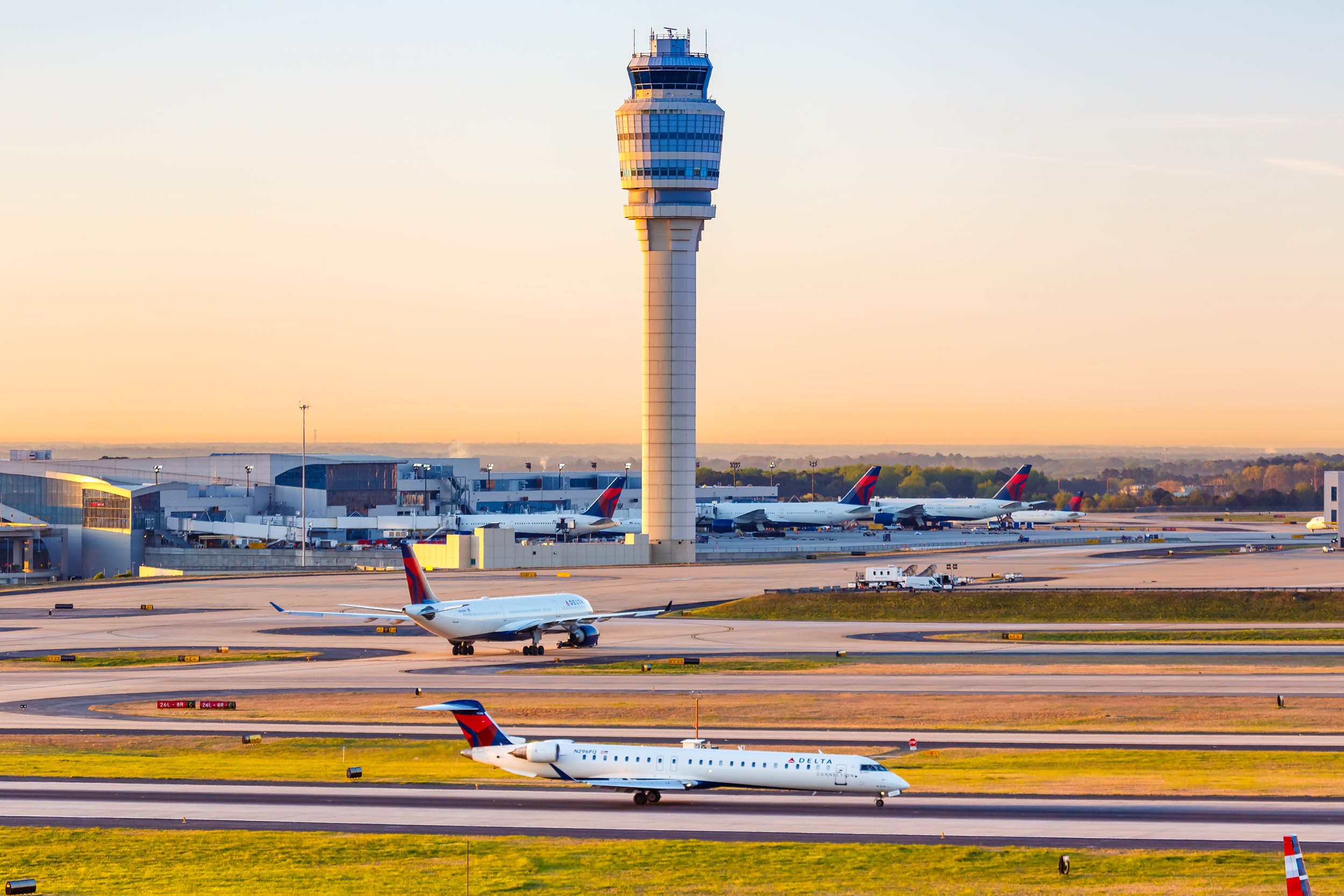Atlanta’s Aging Infrastructure—and What It Means for the Construction Industry
As a city on an exciting growth trajectory, Atlanta’s economy is dynamic and thriving, and all that growth means ample opportunity for the construction industry.
Atlanta has the nation’s third-largest concentration of fortune 500 companies.

Hartsfield-Jackson Atlanta International Airport is the world’s busiest in daily passenger flights.

Atlanta has the highest rate of new business registrations of any American city.

Atlanta’s population has already grown by 1.42 percent in the first few months of 2024, and is expected to reach 7.9 million by 2050.
This growth, while exciting and welcome, does not come without challenges, as the city’s aging infrastructure can – and sometimes does – hamper the completion of new projects.
A HISTORIC CITY FACES MODERNIZATION
Atlanta was founded in 1837 and, amazingly, much of its present infrastructure dates from nearly that long ago. Therefore, it’s no surprise certain infrastructure problems are coming to light today.
One of the most annoying problems for Atlanta residents is the proliferation of sinkholes under the city’s roads. The necessity of costly road repairs is vexing enough, but the underlying cause of the sinkholes is even more concerning. They’re generally caused by failing underground water lines. As water escapes from the pipes, it erodes the surrounding ground, some of which is beneath roadways. This causes sections of road to collapse without warning. Many of those pipes date from the early twentieth century or before. Some are made of slate or wood. In many cases, they reached the end of their useful life long ago.

UPDATING THE CITY’S WATER INFRASTRUCTURE IS A TOP PRIORITY
Atlanta renewed the city’s water mains in the 1950s, lining them with concrete. But that was a long time ago. And it didn’t address the many century-old service lines, sewer lines, and other conduits that still need attention.
In 2018, Atlanta announced a $300 million Water Supply Program to upgrade the city’s water infrastructure. Among the projects included in this multi-year program were a five-mile, 10-foot diameter conveyance line, and the conversion of an abandoned quarry into a reservoir. But there is still much to be done.

ADDRESSING NEEDS AT HARTFIELD-JACKSON
In 2017, a fire at Hartsfield-Jackson Atlanta International Airport led to an 11-hour power outage that caused 735 flight delays and 1,593 cancellations. The event highlighted the need to modernize infrastructure at one of the world’s busiest airports, which was still relying on a computer system developed in the 1970s.
Recognizing the need, the airport has launched ATLNext, its multibillion-dollar capital improvement program that will be implemented over a period of several years. Using funds from the Infrastructure Investment and Jobs Act and elsewhere, a wide range of improvements will be initiated to accommodate the extraordinary level of activity at the airport.

MODERNIZING OLD BUILDINGS
Atlanta’s oldest buildings date back to the Civil War era. Retrofitting them for current use is a major challenge, but one that some contractors are willing to take on. Here are some of the components that typically need to be replaced or updated to make these buildings livable and eco-friendly:
-
Old wiring and fuse systems
-
Old plumbing fixtures and lead pipes
-
Inefficient insulation
-
Conventional HVAC systems—replaced with more efficient heat pumps
-
Conventional lighting—replaced with LED lighting
-
Conventional thermostats—replaced with smart thermostats
-
Old roofing—replaced with cool roofs or green roofs

GOVERNMENT INVESTMENT IN ATLANTA’S INFRASTRUCTURE
In 2022, Atlanta voters approved a series of measures appropriating $750 million to update the city’s infrastructure and invest in other projects to stimulate the local economy. The infrastructure projects included street repairs and park improvements, as well as the construction of new sidewalks, trails, and bike lanes.
The aforementioned Infrastructure Investment and Jobs Act, enacted in 2021, provided federal funds for a variety of projects in addition to improving Atlanta’s airport. There will also be $1.711 billion available to improve roads and bridges across the state, some of which will be spent in Atlanta. And $158.6 million will be used to strengthen water infrastructure and replace lead piping.
THE OPPORTUNITIES—AND THE RISKS
All these activities promise to keep construction companies in Atlanta engaged for a long time to come. For those ready to take advantage, there will be vast opportunities for employment and profit.
But there are also risks and pitfalls to avoid. When dealing with very old buildings and systems, the problems can be much worse than they seem on the surface. A thorough and realistic assessment of all the components in a project is essential. In some cases, the existing infrastructure simply won’t have the capacity to meet the demands of a new project. And working around old structures always involves elevated safety risks.
Beyond that, there can be a maze of regulatory requirements involved in retrofitting old structures. In addition to Atlanta’s building codes and zoning requirements, the state of Georgia has its own building regulations, covering everything from plumbing specifications to the proper gauge of insulation. Contractors should get familiar with these requirements before considering any projects.
HERE ARE SOME TIPS FOR SIDESTEPPING PROBLEMS AND ENHANCING CHANCES OF SUCCESS:
-
Identify and mitigate all potential problems in advance.
-
Plan enough time to get through troubleshooting, permit delays and unforeseen problems.
-
Develop contingency plans.
-
Conduct thorough site surveys beforehand.
-
Coordinate all work with utility companies.
-
Use phased construction, allowing certain areas to be in use while construction continues.
-
Use new technology such as building information modeling (BIM) to streamline processes.
The professionals at Rainwater Constructions are commercial reroof, maintenance and roof repair experts.
READ THIS NEXT
Stay up to date on the latest Rainwater Construction news and event – follow us on LinkedIn!



